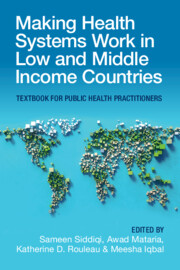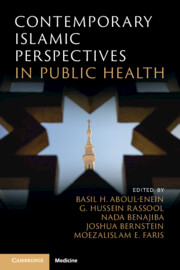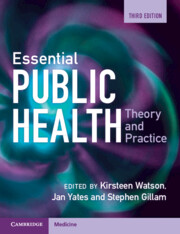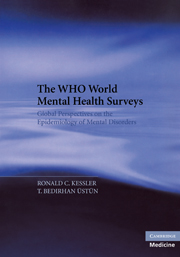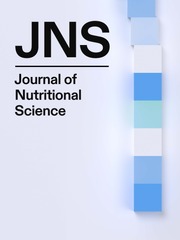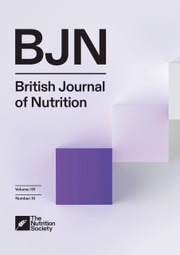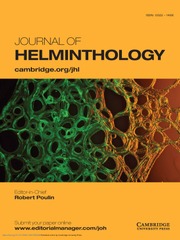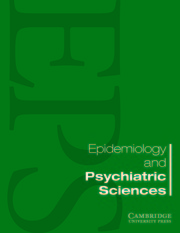Making Health Systems Work in Low and Middle Income Countries
The importance of health systems has been reinforced by the commitment of Low- and Middle-Income Countries (L&MICs) to pursue the targets of Universal Health Coverage, Health Security, and to achieve Health-related Sustainable Development Goals. The COVID-19 pandemic has further exposed the fragility of health systems in countries of all income groups. Authored by international experts across five continents, this book demonstrates how health systems can be strengthened in L&MICs by unravelling their complexities and by offering a comprehensive overview of fundamental concepts, performance assessment approaches and improvement strategies to address health system challenges in L&MICs. Centred on evidence and advocacy this unique resource on health systems in L&MICs will benefit a wide range of audiences including, readers engaged in public health practice, educational programs and research initiatives; faculties of public health and population sciences; policymakers, managers and health professionals working for governments, civil society organizations and development agencies in health.
- Uniquely provides a wide range of readership the opportunity to better comprehend the complexities of health systems, facilitate developing educational and training programs, undertake health systems and implementation research, and implement public health programs shown through examples and good practice from countries of diverse geographies
- Follows a systems approach and thinking through investments in essential public health functions and international health regulations such as disease surveillance, prevention, promotion, protection and pandemic preparedness for enhanced global health and security
- Dealing comprehensively with health system concepts, components, complexities, challenges, assessment approaches through evidence informed options, this book instructs on the design and implementation of health reforms for accelerated progress towards the three dimensions of Universal Health Coverage - how to expand population coverage, how to increase financial risk protection and
Product details
December 2022Paperback
9781009211093
380 pages
234 × 155 × 30 mm
1.03kg
Available
Table of Contents
- Section I. Analysing Health Systems: Concepts, Components, Performance:
- 1. Introduction to health systems: Setting the scene
- 2. Health systems based on primary health care
- 3. Universal health coverage and health system strengthening
- 4. Health system governance: Concepts, principles and practice
- 5. Financing health care: Revenue raising, pooling, and purchasing
- 6. Health workforce in low and middle income countries: Concepts and dynamics unpacked
- 7. The pharmaceutical system and its components: Regulation and management and associated challenges
- 8. Health information systems: Data for decision-making in health systems
- 9. The organization and management of health services
- 10. Health services delivery: Key concepts and characteristics
- 11. Role and contribution of the community in health system strengthening
- 12. Performing health systems: Attributes and approaches to assessment
- 13. Decision-making tools for informed decisions by health policymakers and managers
- 14. Health policy and systems research: The role of implementation research
- Section II. Transforming Health Systems: Confronting Challenges, Seizing Opportunities:
- 15. Universal health coverage and beyond: Health system interventions and intersectoral policies
- 16. Pro-poor expansion of universal health coverage: Health financing strategies and options
- 17. Health insurance for advancing universal health coverage: Disentangling its complexities
- 18. From passive to strategic purchasing in low and middle income countries: The what and how of getting the most from limited resources
- 19. Good governance and leadership for better health systems
- 20. Developing a balanced health workforce: Understanding the health labor market dynamics
- 21. Enhancing equitable access to essential medicines and health technologies
- 22. Health information and information technology: The path from data to decision
- 23. Using health research for evidence-informed decisions in health systems in L&MICs
- 24. Integrated people-centred health care: What is it and how it's done!
- 25. Strengthening hospital governance and management to become high-performing organizations
- 26. Improving the quality and safety of health care in low and middle income countries: What works!
- 27. Harnessing the contribution of the private health sector toward public health goals
- 28. Public-private partnership in health care services
- 29. Embedding people's voice and ensuring participatory governance: Lessons from the Thai experience in community engagement
- 30. Achieving health-related sustainable development goals: Role of health systems strengthening
- 31. The determinants of health systems: Upstream approach to addressing health and social inequities
- 32. Integrating essential public health functions in health systems: Ensuring health security
- 33. Engaging in a health care recovery process
- 34. Health system response to the covid-19 pandemic: Fault lines exposed and lessons learned
- 35. Understanding the global health architecture: Toward greater 'donor' independence
- 36. Political economy of health reforms in low and middle income countries
- 37. Better health systems for better outcomes: How to make it happen!

